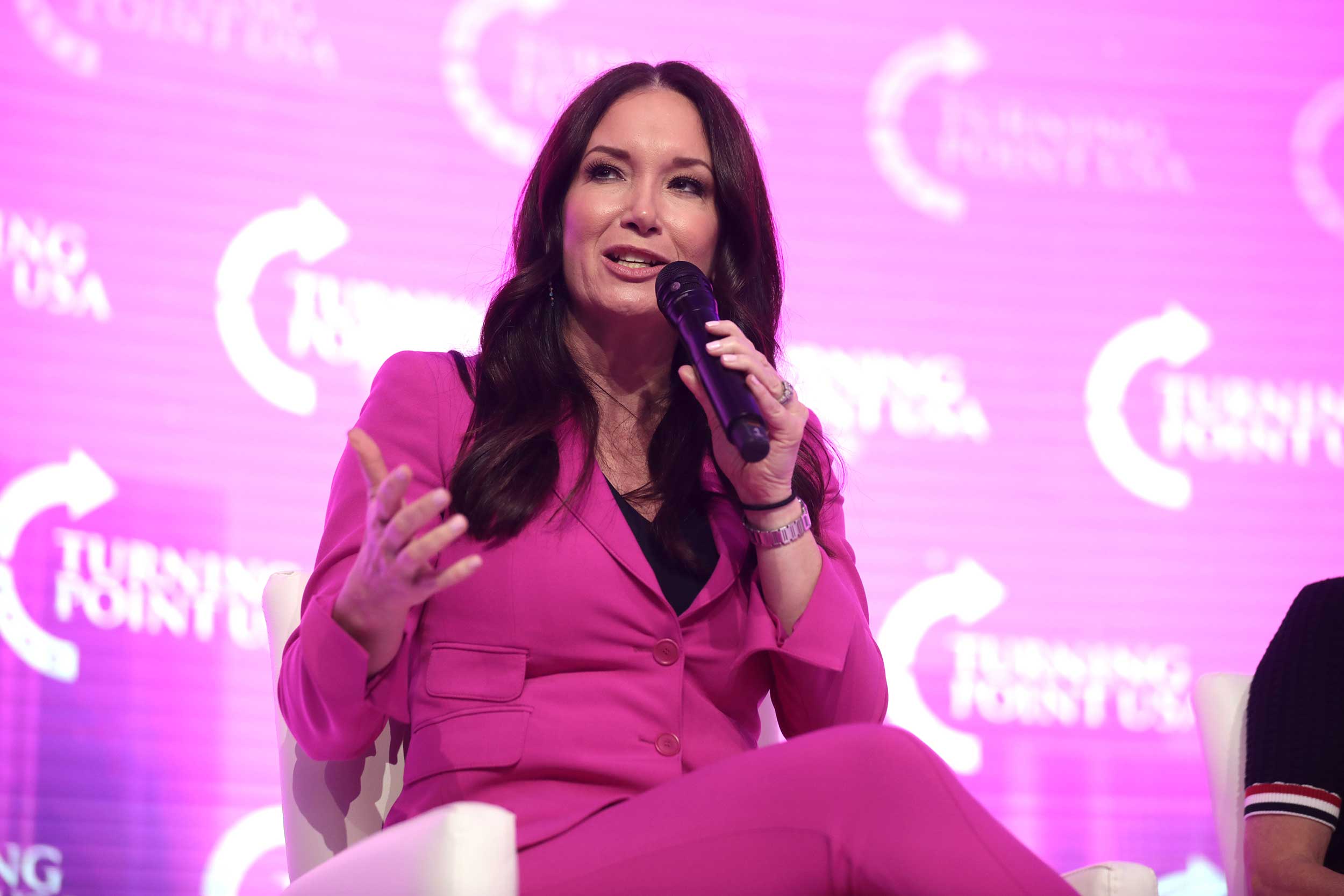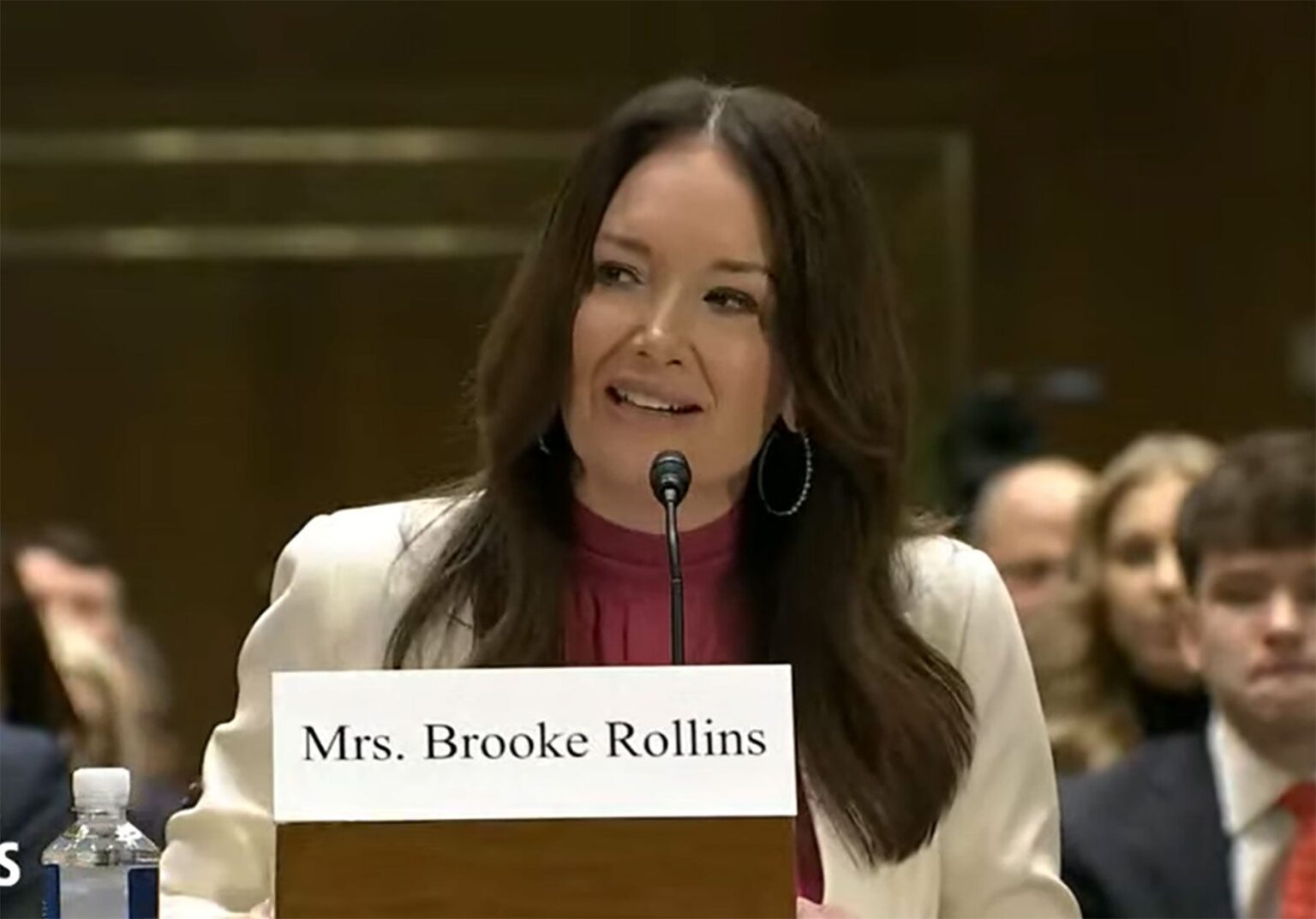When Brooke Rollins was announced in late November as the nominee for U.S. Secretary of Agriculture, she was widely seen as a bit of a mystery. Today, in front of the Senate’s Committee on Agriculture, Nutrition, and Forestry, the nation got the opportunity to hear how she will tackle the mounting challenges facing America’s farmers, from a lingering farm bill and international trade to rural development and scientific research.
“Agriculture is surpassingly important to us as a nation,” Rollins said. “I fully recognize that, if I am confirmed, I am stepping into the role during one of the most economically trying times in American agriculture history.”
Rollins comes into this hearing with broad support from the agricultural sector — and a supportive family, the 1990-91 Texas FFA Officer Team, and agricultural teacher in attendance. During the introduction, Texas Sen. John Cornyn called Rollins’ confirmation a “no-brainer.” And recently, a group of 427 agricultural groups and businesses wrote to committee members offering their support for the nominee and asking to “promptly confirm” her to the post.
“ I want to thank you and am so overwhelmed at the honor to potentially serve the men and women who daily — without pause or complaint — provide our great nation and the world with the best food, fiber, and fuel,” Rollins said during her opening statement for what would be a roughly four-hour-long hearing. “Throughout the past several weeks I have met or spoken with every Republican and Democrat senator on this committee. And I appreciate your insights, your concerns, and your very wise counsel. It is clear we all agree that farmers and ranchers are the cornerstone of our nations communities. And I commit to you today, that if confirmed, I will do everything in my ability to make sure our farmers ranchers and rural communities thrive.”
As secretary, Rollins would lead a U.S. Department of Agriculture that has more that 100,000 employees across the nation. In helping to kick off the hearing, Minnesota Sen. Amy Klobuchar talked about the need for the secretary to be a voice for rural America to help it prosper, especially as it faces the importance of access to farm safety nets, conservation and nutrition, leadership in science and research, and a future with a strong workforce.
“We on this committee have made progress on so many fronts, from strengthening crop insurance to improving voluntary conservation programs, to the good work we have done on biofuels across the aisle,” Klobuchar said. “But there are still numerous challenges facing America: Avian flu, struggling dairy producers, scarcity at food shelves, and the lack of housing, child care, and healthcare facilities in rural America.”

Rollins, who has roots in Texas, has served as president and CEO of the nonprofit America First Policy Institute and has connections to FFA and 4-H. During Trump’s first term, Rollins was an assistant to the president for intergovernmental and technology initiatives. She then went on to become acting director of the U.S. Domestic Policy Council, whose stated goal is to drive “the development and implementation of the President’s domestic policy agenda in the White House and across the Federal government.”
“I hope to have the opportunity to bring that level of passion and commitment to the USDA,” she said.
She noted that, under her leadership, the first 100 days would be a furious effort to move economic aid to farmers. She would help to address animal disease outbreaks and attempt to fulfill President Donald Trump’s vision.
“We must immediately begin to modernize and rethink the USDA of responding to the clear needs and desires of the American people,” she added. “In the longer term, we understand that serving all of American agriculture and all of the American people means ensuring that our rural communities are equipped and supported to prosper.”
The confirmation hearings are being streamed live and can be watched here:
Rollins — smart, informed, and engaging throughout the hearing — talked about her intent to improve rural development programs, ensuring strong and stead domestic and export markets for our agriculture community, removing burdensome and costly regulations that often hamper innovation, ensuring that nutrition programs are effective, and “putting in the work to ensure that we have a healthy next generation.”
And, underlying all of it was her push — to being “a force multiplier” — to make sure a farm bill can move forward in the coming months.
She also noted that farmers aren’t a people who want handouts and want to earn any of the benefits they get — they “want trade, not aid,” she said — and they don’t want regulations unnecessarily bogging down their work.
She believes that she is the best person to make that happen because of her deep experience in policy and the trust she has from the president.
After “having served in the last White House for three years, alongside President Trump, I believe I may be the most well-versed in how the inter-agency process works of all the Cabinet.”
The role of agriculture secretary was one of the most consistent points of Trump’s first term, with his selection at the time, Sonny Perdue from Georgia, serving for the duration of Trump’s presidency.
Rollins earned an undergraduate degree from Texas A&M and a law degree at the University of Texas School of Law. If confirmed, she would be only the second woman in history to ever serve in the role of U.S. secretary of agriculture. The first was Ann Veneman during George W. Bush’s administration.
“My role is to defend, to honor, to elevate our entire agriculture community in the Oval Office, around the table, through the inter-agency process, and to ensure that every decision that is made in the coming four years has that front of mind,” Rollins emphasized.


